
Travel Insurance Covering Heatwave Cancellations: 7 Key Facts Every Smart Traveler Must Know Now
If you’ve ever planned a summer trip, you know how wildly unpredictable the weather can get. Travel insurance sometimes covers heatwave cancellations, but only in certain cases—like when your airline or hotel actually stops operating for at least 24 hours because of extreme heat. I’ll never forget sweating buckets in Rome, glued to the news, and regretting that I hadn’t read the fine print on my policy.
The reality? The details really matter—policies can differ a lot, and what seems like an obvious reason for a refund might not even be listed. Let’s untangle what you can reasonably expect if a heatwave scrambles your travel plans, so you’re not left in the lurch when it counts most.
Table of Contents
- Key Takeaways
- Understanding Heatwave-Related Cancellations
- Definition Of A Heat Wave
- Impact On Travel Plans
- How Heatwaves Cause Trip Disruptions
- What Is Travel Insurance Covering Heatwave Cancellations?
- How Coverage For Heatwave Cancellations Works
- Typical Covered Events And Exclusions
- Comprehensive Vs. Standard Travel Insurance Options
- Eligible Reasons For Claiming Heatwave Cancellation Coverage
- Medical Emergencies And Heatwave Risks
- Flight And Trip Interruptions Due To Extreme Heat
- Government Travel Advisories And Bans
- Important Exclusions And Limitations
- Pre-Existing Medical Conditions
- Policy Coverage Limits
- Denied Claims Due To Insufficient Documentation
- Types Of Travel Insurance Policies That Include Heatwave Protection
- Cancel For Any Reason (CFAR) Policies
- Comprehensive Policies With Weather Add-Ons
- What’s Covered Under Heatwave Cancellation Insurance?
- Reimbursement For Non-Refundable Expenses
- Additional Expenses And Alternative Arrangements
- Medical Coverage For Heat-Related Illness Or Injury
- Claiming Your Heatwave Cancellation Coverage
- Filing A Claim Step By Step
- Required Supporting Documentation
- Common Reasons For Denied Claims
- Comparing Travel Insurance Plans For Heatwave Coverage
- Key Differences Between Providers
- What To Look For In Cancellation Coverage
- Practical Tips For Travelers Concerned About Heatwaves
- Booking Refundable Versus Non-Refundable Trips
- Monitoring Weather Conditions Before Travel
- Financial Protection And Peace Of Mind Through Travel Insurance
- Safeguarding Your Investment
- Understanding Policy Details And Exclusions
- Frequently Asked Questions
- Can travelers be reimbursed if a heatwave forces trip cancellation?
- What aspects of weather-related disruptions are typically covered by travel insurance?
- Are “cancel for any reason” policies effective against heatwave trip cancellations?
- How do insurance policies approach cancellations due to extreme temperature events?
- What should you look for in travel insurance to ensure coverage includes climate extremes?
- Which travel insurance companies offer the most comprehensive coverage for weather-induced cancellations?
- Book Your Dream Experience
- More Travel Guides
Key Takeaways
- Heatwave cancellations only get covered in pretty specific situations.
- Insurance policies have strict rules and plenty of exclusions.
- You need to check your coverage details before you buy.
Understanding Heatwave-Related Cancellations

Heatwaves might sound like just another hot spell, but if you’ve ever been stranded at an airport with sweat dripping down your back, you know it’s on a different level. These extreme conditions can wreck your travel plans with barely any warning.
Definition Of A Heat Wave
A heat wave isn’t just a couple of warm days. It means the temperature stays abnormally high—sometimes for days—often with humidity making things worse.
Meteorologists call it a heat wave when temps hit the top 10% for your area and just won’t budge. Places used to mild summers get hit the hardest, since their infrastructure isn’t built for relentless heat.
Some countries issue official alerts when a heat wave is declared, which can trigger special travel rules or health warnings. Keep an eye out for these advisories before your trip (I learned that lesson the hard way in France—stepping outside felt like opening an oven).
Impact On Travel Plans
Heat waves can throw your travel plans into chaos. Airlines often scramble schedules because extreme heat messes with takeoff and landing limits, especially at busy airports.
Flights sometimes get delayed for hours, or worse, canceled outright. Railways and buses face trouble too—train tracks can warp, and local public transit might scale back service to avoid breakdowns.
I’ll never forget the time a supposedly “air-conditioned” train in Spain died halfway through the journey, leaving everyone hot, grumpy, and stuck.
Booked tours or outdoor activities? Many operators will cancel for safety during a heat wave. Attractions like zoos, parks, or even some museums may close early or not open at all.
Miss one connection and your whole itinerary can unravel fast.
How Heatwaves Cause Trip Disruptions
Severe weather, especially heat waves, can shut down much more than just your sightseeing. Power grids in some cities get overloaded as everyone runs the AC, causing blackouts that force hotels to evacuate guests or shut down pools and elevators.
Some places issue government health advisories, urging people to stay indoors, canceling events, or even restricting travel. Wildfires can spark and spread faster in extreme heat, leading to road closures and sudden evacuations.
When that happens, finding a last-minute train or rental car out is almost impossible. Medical emergencies like heat stroke or dehydration are also real risks.
I’ve seen travelers end up in clinics because they underestimated how fast a hot day can turn into a real crisis. Without flexible travel insurance, these disruptions can snowball into a ruined trip and a hefty bill.
Table: Ways Heatwaves Disrupt Travel
| Type of Disruption | Example |
|---|---|
| Flight cancellations | Planes can’t take off safely |
| Transportation delays | Train tracks warp, buses overheat |
| Attraction closures | Zoos, museums shut down early |
| Health advisories | No travel during peak heat periods |
| Natural disasters | Wildfires, blackouts force evacuations |
What Is Travel Insurance Covering Heatwave Cancellations?
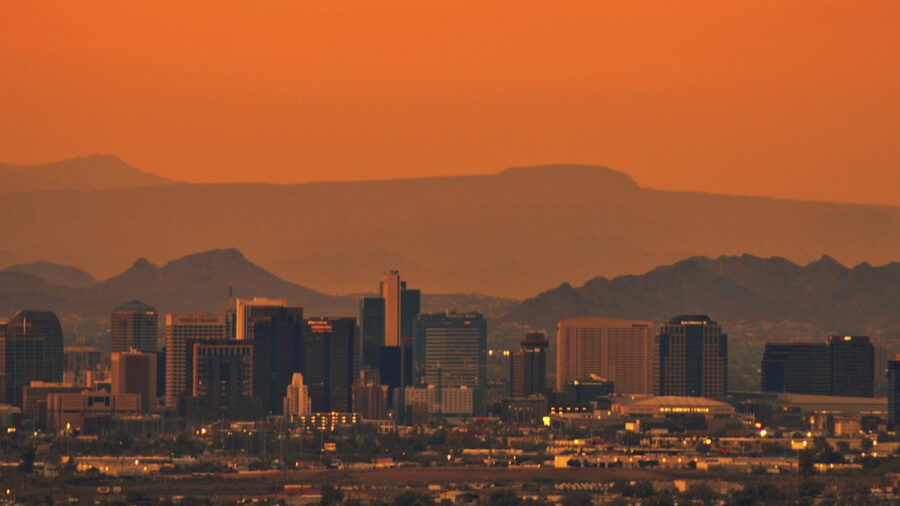
Heatwaves are getting nastier, and that can throw a wrench into big vacation plans. Whether your trip gets canceled, delayed, or you’re forced to cut it short, knowing how travel insurance works with heatwave cancellations is more important than ever.
How Coverage For Heatwave Cancellations Works
Travel insurance doesn’t always treat heatwaves like hurricanes, but the basics are similar. If an official warning comes out—say, your government tells you not to travel because of dangerous heat—you could get trip cancellation benefits.
But if you just don’t feel like going because it’s hot, that’s not enough. Suppose you’re headed to Europe during a record-breaking heatwave.
If the city shuts down public services, or your hotel becomes unlivable, that’s when insurance might help. You’ll need proof—news reports, official advisories, and so on.
Timing is everything. If you buy your policy after the heatwave’s already making headlines, you probably won’t be covered. Always snag your travel insurance before anything starts brewing.
Some policies also pay for extra hotel nights or transport if your journey gets delayed by extreme weather. It’s not just about canceling—sometimes you can get compensated for interruptions, too.
Typical Covered Events And Exclusions
Not every weather event gets the same treatment from insurance companies. You really have to look at the “covered reasons” in your plan.
If a heatwave makes your hotel unlivable—loss of power, AC, or forced evacuations—insurance might cover your losses. But here’s the kicker: if you simply don’t want to travel because it’s hot, and there’s no official warning or “uninhabitable” conditions, you’re out of luck.
No payout, no matter how miserable you feel. Same goes for general discomfort—policies see that as your choice, not an emergency.
Government advisories matter a lot. If your government says it’s unsafe to travel, your policy might kick in—just don’t expect help if the heatwave is only making things uncomfortable, not dangerous.
Comprehensive Vs. Standard Travel Insurance Options
Not all insurance plans are created equal. Standard travel insurance usually covers the basics—trip cancellations from sudden illness, accidents, or some natural disasters—but often skips slow-building risks like heatwaves.
These plans usually only pay out if your destination becomes uninhabitable. Comprehensive insurance, though, adds extra features.
Some plans let you “cancel for any reason”—honestly, that’s the gold standard if you’re worried about heatwaves or other curveballs. With “cancel for any reason,” you don’t need a government warning or a hotel shutdown (but you do have to buy the insurance soon after your first trip payment).
I always tell my frequent-travel friends or anyone who’s a little anxious to look at comprehensive travel insurance. It costs more, but if you want extra flexibility when unpredictable weather’s a concern, it’s worth it.
And here’s a little hack—before booking your next trip, look for deals with flexible cancellation, or use flight alerts to snag cheap flights, then lock in solid insurance. That backup can really save you from a meltdown later.
Eligible Reasons For Claiming Heatwave Cancellation Coverage
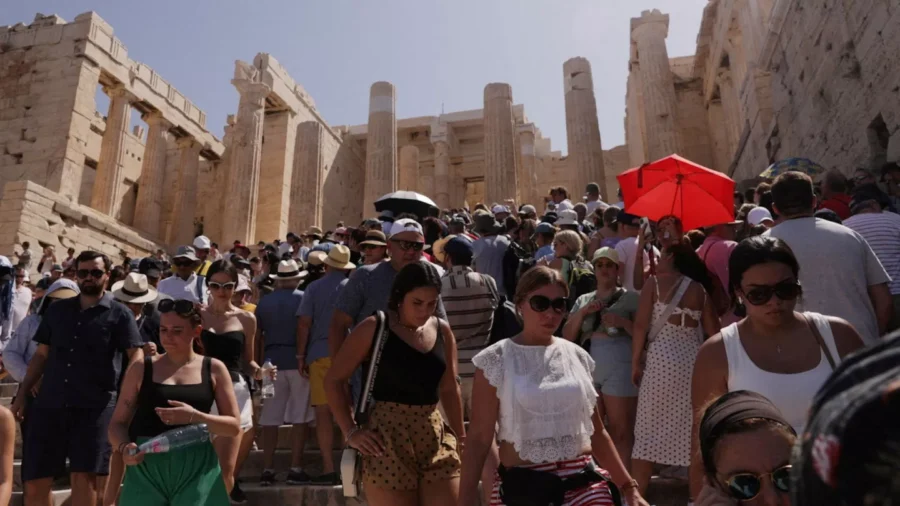
Heatwaves aren’t just a sweaty inconvenience—they can make travel downright impossible or unsafe. When extreme temperatures hit, there are some specific reasons you might be able to claim coverage for heatwave-related cancellations or interruptions.
Medical Emergencies And Heatwave Risks
If you—or someone you’re traveling with—has a medical emergency because of the heat, a lot of travel insurance policies will have your back. Heatstroke or severe dehydration during a blazing summer in Europe isn’t rare, and sometimes doctors advise you to stay inside or cancel plans.
If your doctor tells you to delay or cancel your trip for a heat-related medical reason, that might count as a valid claim. Some policies specifically list medical emergencies as covered events for trip cancellation or interruption, but always check the fine print.
Kids, older travelers, or anyone with heart or lung issues are more likely to run into trouble during a heatwave. I had to cut a trip short in Spain once because my cousin nearly fainted at the train station—hottest day in 60 years! The insurance paperwork was a pain, but it paid off.
Pre-existing medical conditions usually need to be disclosed in advance. Skip that step and insurers might deny your claim, even if the heat caused the problem. Always carry proof from a licensed doctor if you must cancel for medical reasons.
Flight And Trip Interruptions Due To Extreme Heat
Airlines sometimes cancel or delay flights during heatwaves, especially where runways get too hot for safe takeoff or landing. If your flight gets canceled, delayed for hours, or you have to reroute because of dangerous heat, travel insurance could pay out.
Most policies treat these as “unforeseen circumstances,” like snowstorms or hurricanes. Keep all your airline documentation and receipts for extra costs—meals, hotel stays, the works.
I’ve seen desert airports in the U.S. ground planes for hours—hot, thin air just doesn’t give enough lift! Some insurers cover missed or delayed departures, so check if “trip interruption” or “trip delay” is included.
Extreme heat can also shut down tourist attractions or hotels. If your prepaid hotel becomes uninhabitable or there’s a blackout, save every email from the property. Insurers want all the details.
Government Travel Advisories And Bans
If a heatwave gets so bad that your government issues an official travel advisory or outright ban, your trip insurance may let you cancel and recoup some or all of your costs. These advisories often mention wildfires, water shortages, or infrastructure failures (think blackouts when everyone’s blasting the AC).
Coverage depends on your policy’s wording. Some plans specifically list government-issued advisories as covered reasons for cancellation or interruption, but not all do.
Last summer, during the Greece wildfires, some friends managed to cancel everything when their embassy told travelers to leave. Watch for advisories from your own country and local authorities at your destination.
If you see “Do Not Travel” or “Evacuate,” document it—screenshots, emails, printouts. Don’t go by hearsay—you’ll need solid proof for your claim.
Important Exclusions And Limitations
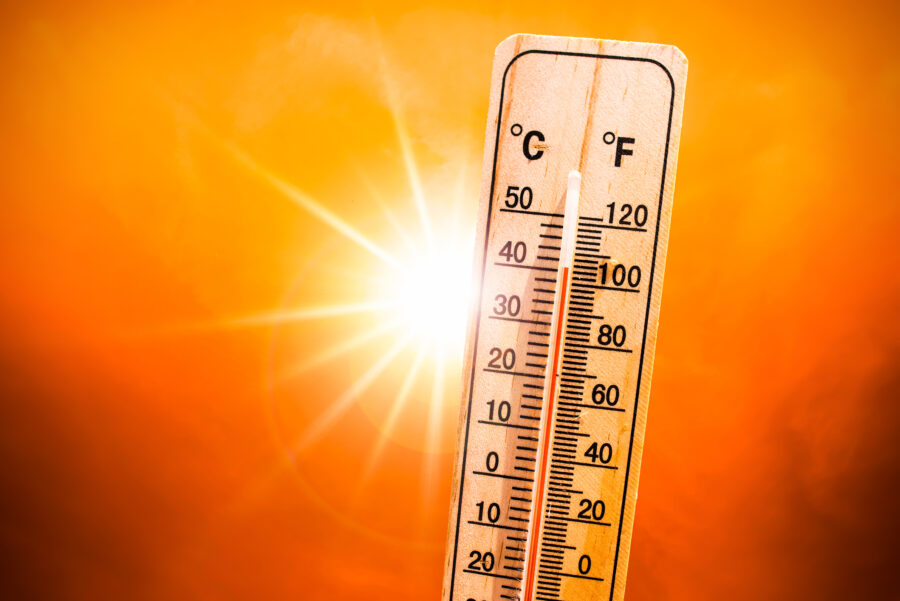
Heatwave cancellations aren’t always easy to get covered by travel insurance, and there are some sneaky details that can trip you up. Sometimes what’s not covered is just as important as what is, so you’ll want to make sure you really know what your policy protects.
Pre-Existing Medical Conditions
If you have a pre-existing medical condition, you need to read the fine print before you book those nonrefundable flights. Most insurers list medical conditions they won’t cover if something goes wrong—even if a heatwave is involved. It’s frustrating, especially if you’re trying to travel safely.
Some policies let you add a “waiver” for pre-existing conditions, but not all do. And those that do usually want you to buy the insurance right after booking—sometimes within days.
Wait too long and you might be out of luck. If your asthma, heart issues, or any other diagnosis could get worse with high temps, double-check that you’re covered. Don’t just assume.
If you don’t see it spelled out, contact the insurer and get it in writing.
Policy Coverage Limits
Travel insurance always has coverage limits, and those can sneak up on you. Just because your flight was canceled for a heatwave doesn’t mean you’ll get reimbursed for the whole trip.
There might be a cap on how much you get back. Sometimes, they’ll only pay for costs directly caused by the disruption—like flight change fees or lost hotel nights—not everything you prepaid.
Some policies limit benefits per person or per family, so you could end up eating some of the cost yourself. Look for those “maximum benefit” tables or sections and do the math for your group.
If you travel a lot like I do, never trust the bold print alone. Dig into the details and limits, and don’t hesitate to ask blunt questions about what “weather-related cancellation” actually means for extreme heat.
Denied Claims Due To Insufficient Documentation
If you ever need to file a claim because a heatwave wrecked your travel plans, paperwork is going to matter—a lot. Insurers can deny your claim if you haven’t backed up your story with solid proof.
You’re responsible for showing your trip got canceled specifically due to heat, not for some random reason they won’t cover. Keep every document tied to your journey. That means booking confirmations, receipts, airline notices, official weather advisories, and—most important—anything from companies stating your plans were canceled “due to extreme heat” or a particular weather event.
Even a quick screenshot of the airline app’s cancellation notice can make a difference. I once nearly lost $400 because I deleted an email from a hotel that blamed a heatwave for shutting down. It took weeks of emails to fix, and honestly, you don’t need that headache waiting for you after a trip.
Save all your trip info and stash it somewhere safe—cloud backup, email folder, whatever works.
Types Of Travel Insurance Policies That Include Heatwave Protection
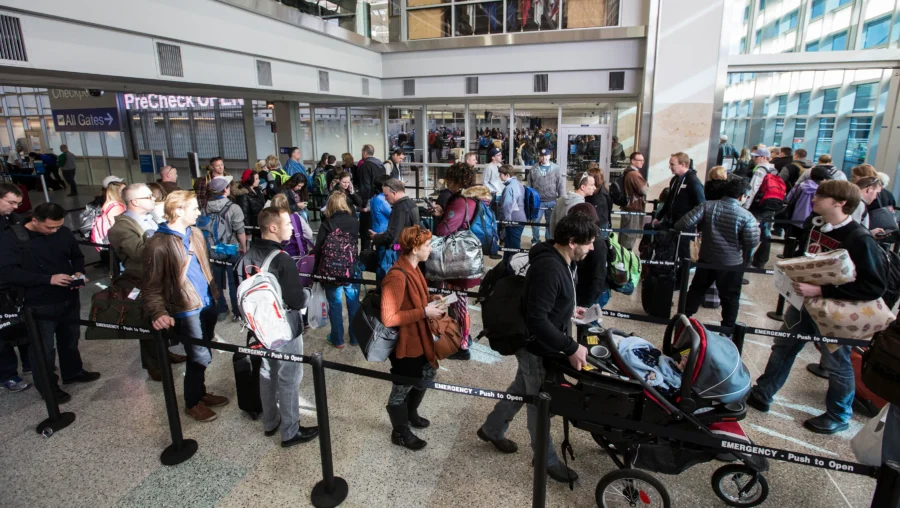
Not every travel insurance plan covers heatwave cancellations, so you really need to know which ones actually help. Cancel for Any Reason (CFAR) and certain comprehensive policies can give you a safety net if extreme heat might derail your trip.
Cancel For Any Reason (CFAR) Policies
If you want maximum flexibility, CFAR policies honestly give you the most control. You can cancel your trip for nearly any reason—yes, even if a heatwave suddenly makes your vacation sound like a sweaty nightmare.
I grabbed a CFAR upgrade before a summer trip to Spain, and I was grateful when temperatures soared. With CFAR, you don’t have to prove the weather made your destination “uninhabitable.” There’s a catch, though: you usually need to buy this coverage soon after booking—think two to three weeks.
You’ll typically get back a portion of your costs, not always the full amount. I’ve seen it range from 50-75%. Always double-check the fine print; not all insurers offer CFAR, and they love their weird little rules.
Comprehensive Policies With Weather Add-Ons
Comprehensive travel insurance is the go-to for most folks, but don’t just assume it covers heatwave cancellations by default. You need to dig into the details and look for “adverse weather” or weather-related add-ons.
Sometimes you have to ask for this coverage when you buy. Some policies only pay if airlines cancel flights or if your hotel becomes “uninhabitable”—which can be a high bar unless the AC dies or there’s a government warning.
I’ve seen friends get burned by policies that only covered heatwaves with a government advisory. If you’re heading to a place that’s notorious for brutal summers—think Southern Europe or Florida—find a comprehensive plan with a weather add-on. Seriously, call the insurer and get any weird details in writing before you buy.
What’s Covered Under Heatwave Cancellation Insurance?
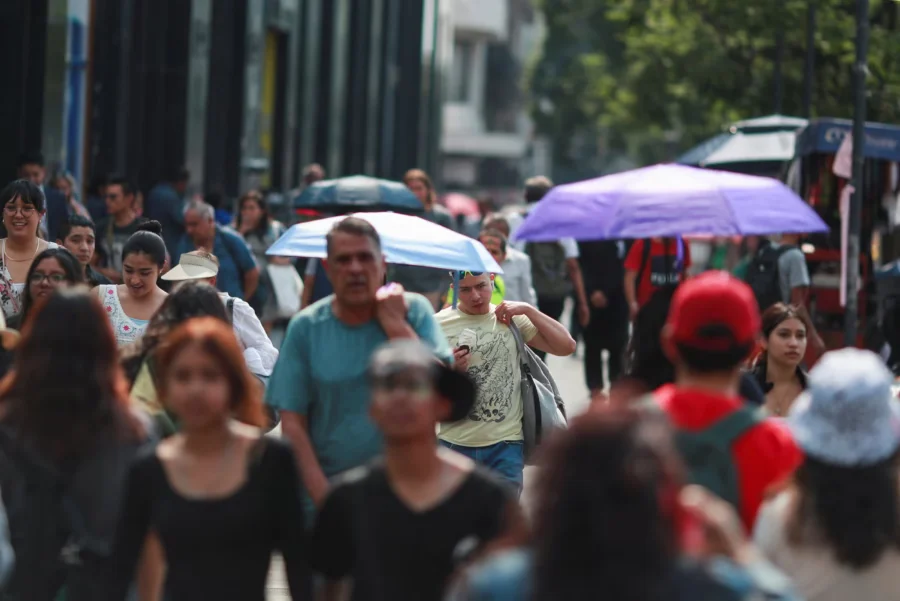
If a heatwave forces you to cancel or change your trip, you’re probably wondering what you can actually get reimbursed for. Not all heat-related headaches are treated equally by insurance, so knowing the details can save your wallet and your nerves.
Reimbursement For Non-Refundable Expenses
Travel insurance will often pay you back for prepaid, non-refundable parts of your trip if you cancel due to a covered reason, like an official government warning about dangerous heat. Think hotel bookings, tours, tickets, and sometimes flights you can’t otherwise get refunded.
But here’s the rub—not all policies treat a heatwave as a valid reason. Usually, it has to be severe enough to make the place unsafe or “uninhabitable.” I learned this the hard way in Italy one summer; the heat was wild, but without a government emergency, my lost deposits stayed lost.
Typical non-refundable expenses that might be covered:
- Hotel stays you paid in advance
- Tours and activities booked before departure
- Transport tickets with strict no-refund rules
Always double-check your policy and don’t hesitate to call your insurer if you’re not sure what counts.
Additional Expenses And Alternative Arrangements
Sometimes a heatwave doesn’t cancel your whole trip, but it throws enough chaos at your plans to cost you extra. If your flight gets delayed and you miss part of your holiday, you might need an extra hotel night or a new flight.
Good travel insurance can cover those extra costs. Imagine being stuck at the airport, sweating buckets because the train tracks are melting. I know travelers who’ve claimed emergency hotel nights and meals—though, let’s be honest, nobody ever covers lost gelato.
Covered additional expenses can include:
- Emergency accommodation and meals
- Extra transportation costs
- Rebooking fees for tours or events
Keep your receipts! Snap a photo before your hands get too sticky from sunscreen.
Medical Coverage For Heat-Related Illness Or Injury
Heatwaves can do more than ruin your plans—they can land you in the ER. Travel insurance that covers medical expenses will usually pay for treatment if you get sick from the heat, whether it’s dehydration, heat exhaustion, or, in rare cases, heatstroke.
I’ve seen plenty of tourists end up needing IV fluids after underestimating a heat advisory. Most decent international policies cover:
- Doctor visits and hospital care
- Medication (even if you just run out of electrolyte tabs)
- Emergency evacuation if things get really bad
Some plans even pay out in the (very rare) event of serious illness, injury, or death linked to extreme heat. Always read the fine print. And, buy extra water—it’s never covered, but you’ll thank yourself later.
Claiming Your Heatwave Cancellation Coverage
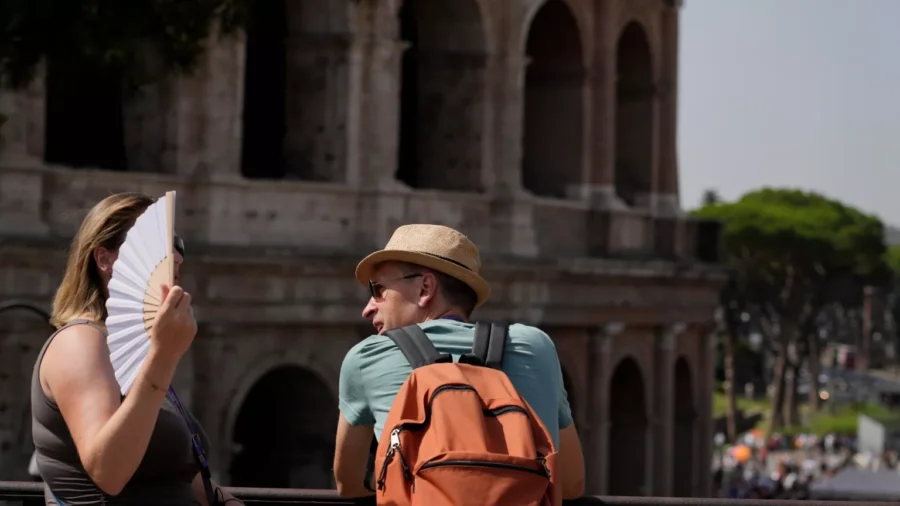
When a heatwave messes up your plans, knowing how to claim your coverage can save you a ton of stress. The details matter—submit your claim on time, have the right paperwork, and know why some claims get denied.
Filing A Claim Step By Step
As soon as you know your trip is canceled because of an extreme heatwave, notify your insurance company. Time matters—a lot of insurers give you a short window to start a claim.
Go to your provider’s website, log in, and start a new claim. You’ll fill out a form with your policy number, trip dates, and the reason for cancellation. Just be direct: your trip was called off because of a heatwave, not just cold feet.
After submitting, you might need to call them if you have questions. Always keep the emails and confirmation numbers they send you. I’ve lost mine before—makes things much harder if you need to prove something later.
Most providers send email updates about your claim. If they need more info, they’ll ask. If you’re stuck waiting, don’t be shy—call the claims department. Insurance really only works if you’re persistent and organized.
Required Supporting Documentation
Paperwork is everything. Insurance companies won’t just take your word for it, so the more supporting documentation you gather, the better your chances.
You’ll need to provide:
- Proof of payment for non-refundable bookings (flights, hotels, tours)
- Your policy details (PDF or email confirmation)
- Written communication from airlines or hotels if they canceled due to the heatwave, or advisories from local offices confirming the extreme temperatures
- Receipts for added expenses, like extra accommodation or meals if you were stranded
If you’re like me, you might lose track of digital receipts. Pro tip: make a folder on your phone or laptop as soon as you book—dump everything in there. It pays off when you need to file a claim fast.
A simple table helps you keep track:
| Document Type | Why It’s Needed |
|---|---|
| Flight/Hotel Receipts | Prove non-refundable expenses |
| Policy Details | Verify your coverage |
| Heat Advisory Notice | Show weather as cause |
| Travel Provider Emails | Confirm cancellation details |
Make sure everything’s legible—claims get delayed all the time because paperwork is blurry or cropped.
Common Reasons For Denied Claims
Heatwave cancellations can get complicated. Most travel insurance policies won’t pay out just because you’re nervous about high temperatures. Insurers look for official reasons—like airlines canceling flights, or a city being declared unsafe.
Other common reasons claims get denied:
- You canceled before checking your policy. (Many plans don’t treat high temperatures as a valid reason. Always read the details—seriously.)
- You waited too long to file. There’s usually a limit, like 30 days.
- Missing documentation. Forgetting proof of expense or an official cancellation email is an easy way to get denied.
- Pre-existing events. If you buy insurance after the heatwave starts, you’re out of luck.
If you get denied, don’t give up. Sometimes a phone call and a missing document can turn things around. I’ve had claims denied, only to get paid after clarifying something simple. Keep every scrap of paper or email, and be patient—insurance companies aren’t fast, but they have paid me back more than once.
Comparing Travel Insurance Plans For Heatwave Coverage
Travel insurance plans vary wildly when it comes to heatwave cancellations. Some providers include it, others don’t—so don’t assume you’re covered just because you bought a policy.
Key Differences Between Providers
Not all travel insurance works the same, especially with weather chaos. Some plans help if extreme temperatures force airlines to cancel flights; others don’t even mention heatwaves.
Big companies usually offer several types of trip cancellation insurance. I’ve seen travelers assume they’re covered for “any weather,” only to find out heatwaves aren’t listed. If there’s no official government warning or evacuation, some insurers just shrug. Always compare what qualifies as a “covered” weather event.
Let’s say you score a great deal on a flight to a sunny spot using a tool to search flights. It’s still up to you to confirm—will a last-minute heatwave blow up your plans and budget, or will your insurance actually step in?
What To Look For In Cancellation Coverage
When you’re checking out a travel insurance policy, scroll to the “covered reasons” for trip cancellation. Look for words like “severe weather,” “natural disasters,” or “civil authority closures.” A lot of plans only pay if flights are canceled by the airline—not because you just don’t want to travel in the heat.
Read closely for exceptions. I’ve seen policies that only pay if the weather hits your exact destination, not just the region. Does your policy mention heat specifically? Many don’t. If you’re going somewhere with wild weather swings, you might need extra coverage.
Some seasoned travelers pay more for “Cancel For Any Reason” options. It’s not cheap, but lets you call off your trip for whatever reason. That can be a lifesaver if you’re headed somewhere during a record heat spell and don’t want to gamble on your insurance.
Bargain hunters chasing cheap airfare still need to invest time reading the policy. Saving on your ticket only matters if your coverage keeps up with real-world chaos.
Practical Tips For Travelers Concerned About Heatwaves
Heatwaves can turn a dream trip into a sweaty challenge, especially when travel insurance doesn’t always cover weather-based cancellations. Planning ahead and making smart booking decisions can save you plenty of stress—and probably some cash—if temperatures throw your plans off track.
Booking Refundable Versus Non-Refundable Trips
Honestly, I’ve lost count of how many travelers I’ve met who ended up stuck with non-refundable hotels or tours when a brutal heatwave made their plans unbearable. If you’re even a little worried about extreme weather, prioritize flexible reservations.
Most big-name sites like Booking.com and Expedia let you cancel or change bookings without much hassle—or at least, that’s what they claim.
But here’s the catch: sometimes those “refundable” rates sneak in a fee, so always read the fine print. I can’t stress that enough.
When you’re booking activities—maybe a walking tour or anything outdoors—pick companies that spell out their cancellation rules in plain language. If the heat gets dangerous, you want the option to back out.
And don’t forget, flights, car rentals, and attractions each play by their own refund rules. Don’t assume one flexible booking magically covers everything.
Quick list:
- Always pick refundable bookings for flights, hotels, and tours when you can
- Double-check for hidden fees on “free cancellation” offers
- Keep receipts to document non-refundable expenses if you need to make a claim
Monitoring Weather Conditions Before Travel
Heatwaves don’t exactly give you a heads-up. I’ve seen summer destinations go from warm to “why-did-I-leave-the-air-conditioning” overnight.
Check weather forecasts not just a few days out, but even weeks before your trip. Use apps or sites that let you track temperature trends—it’s a simple step that’s saved me more than once.
Set up weather alerts for both your departure and arrival cities. If you see a heatwave coming, don’t just cross your fingers—review your cancellation windows and see what you can change with your hotels or tours through GetYourGuide or Viator.
Call your accommodation or tour operator if you’re unsure. Sometimes, just asking gets you more flexibility, especially when everyone’s dealing with the same weather headache.
I always leave a buffer in my plans. If you have to cancel non-refundable stuff, your travel insurance might demand proof that the weather made it unsafe, so save those screenshots or alerts—just in case.
Financial Protection And Peace Of Mind Through Travel Insurance
Travel insurance isn’t just paperwork—it’s your backup plan when things go sideways. With unpredictable weather, especially heatwaves, knowing what’s actually covered can make all the difference.
Safeguarding Your Investment
Travel costs add up fast, don’t they? Flights, hotels, tours, and sometimes that last-minute, non-refundable splurge.
If a nasty heatwave hits and it’s too risky to travel, cancellation coverage can help you claw back some of your money.
When you’ve got financial protection, you’re not stuck paying for a trip you can’t take. I learned this the hard way in southern Spain—my friend’s insurance let him cancel, while I just melted (bad move).
A solid policy can cover extra costs for rebooking flights, grabbing luggage storage if plans suddenly shift, or even finding a safe, cool hotel at the last second. For me, it’s all about reducing stress when the unexpected happens. Sure, you might grumble at the price, but that peace of mind is tough to beat.
Understanding Policy Details And Exclusions
It’s tempting to assume insurance covers everything, but you’ve got to dig deep into the details. Most policies have a laundry list of exclusions—annoying, but necessary.
Heatwaves aren’t always called out by name, but if the government declares an emergency, that can trigger coverage. Look for phrases like “extreme weather events” or “unforeseen natural disasters” in the policy.
If a heatwave shuts down your flight or makes your hotel unlivable, you’re probably covered. If you just don’t want to sweat? That’s rarely enough.
If you’re unsure, call before you buy. I once spent ages on hold just to confirm my policy would cover a wild summer forecast—worth it for the peace of mind. Save those confirmation emails, too; disputes do happen.
Frequently Asked Questions
Travel insurance and weather cancellations—honestly, it’s never as clear-cut as you’d think. If you’re caught in a heatwave, you need to know what your policy really says before you even start packing. The details can trip you up every time.
Can travelers be reimbursed if a heatwave forces trip cancellation?
It’s rarely straightforward. Most standard travel insurance won’t pay out just because a heatwave makes things miserable; the weather has to make travel literally impossible or shut down a service.
If your hotel closes or your flight gets canceled, you might have a shot at a claim. But if you’re just too hot? Sadly, that’s not enough for most insurers.
Usually, you’re only protected if the weather causes real, documented disruptions—canceled flights, closed hotels, that sort of thing.
Some insurers want proof that your beach resort or activities are totally off-limits, not just less enjoyable. Check your plan’s definition of a “covered reason” so you know where you stand.
Are “cancel for any reason” policies effective against heatwave trip cancellations?
“Cancel for any reason” (CFAR) plans offer the most flexibility by far. If you wake up and decide the heat just isn’t worth it, CFAR lets you cancel for almost any reason—including a heatwave.
But they cost more, and you need to buy them soon after booking. You’ll only get a portion of your money back, not the whole thing. Definitely read the fine print.
How do insurance policies approach cancellations due to extreme temperature events?
Most insurers treat heatwaves differently from blizzards or hurricanes. If extreme heat forces a travel service to shut down for a set period—12, 24, or even 48 hours—you might get trip interruption benefits.
But if you’re just uncomfortable, that won’t cut it. Without an official cancellation or closure, insurers almost never pay out. I wish they did, but I’ve never seen it happen.
What should you look for in travel insurance to ensure coverage includes climate extremes?
Read every exclusion and all the fine print. Look for policies that mention “unforeseen weather events,” and check if they include extreme heat—not just storms.
You want coverage with clear rules for trip interruptions and what triggers them. CFAR upgrades are usually your safest bet if heatwaves worry you, but regular policies rarely help unless the heat literally stops your trip in its tracks.
Which travel insurance companies offer the most comprehensive coverage for weather-induced cancellations?
Big names like Allianz, Seven Corners, and Travel Guard tend to pack their plans with weather coverage options. Still, let’s be real—wading through their policy language can feel like decoding a puzzle.
Honestly, I’ve watched friends rave about “cancel for any reason” add-ons from Squaremouth or InsureMyTrip. These sites make comparing policies way less painful.
Don’t just skim the features—dig into real customer reviews about the claim process for weather issues. You don’t want to get stuck arguing fine print while your vacation’s already gone sideways.



